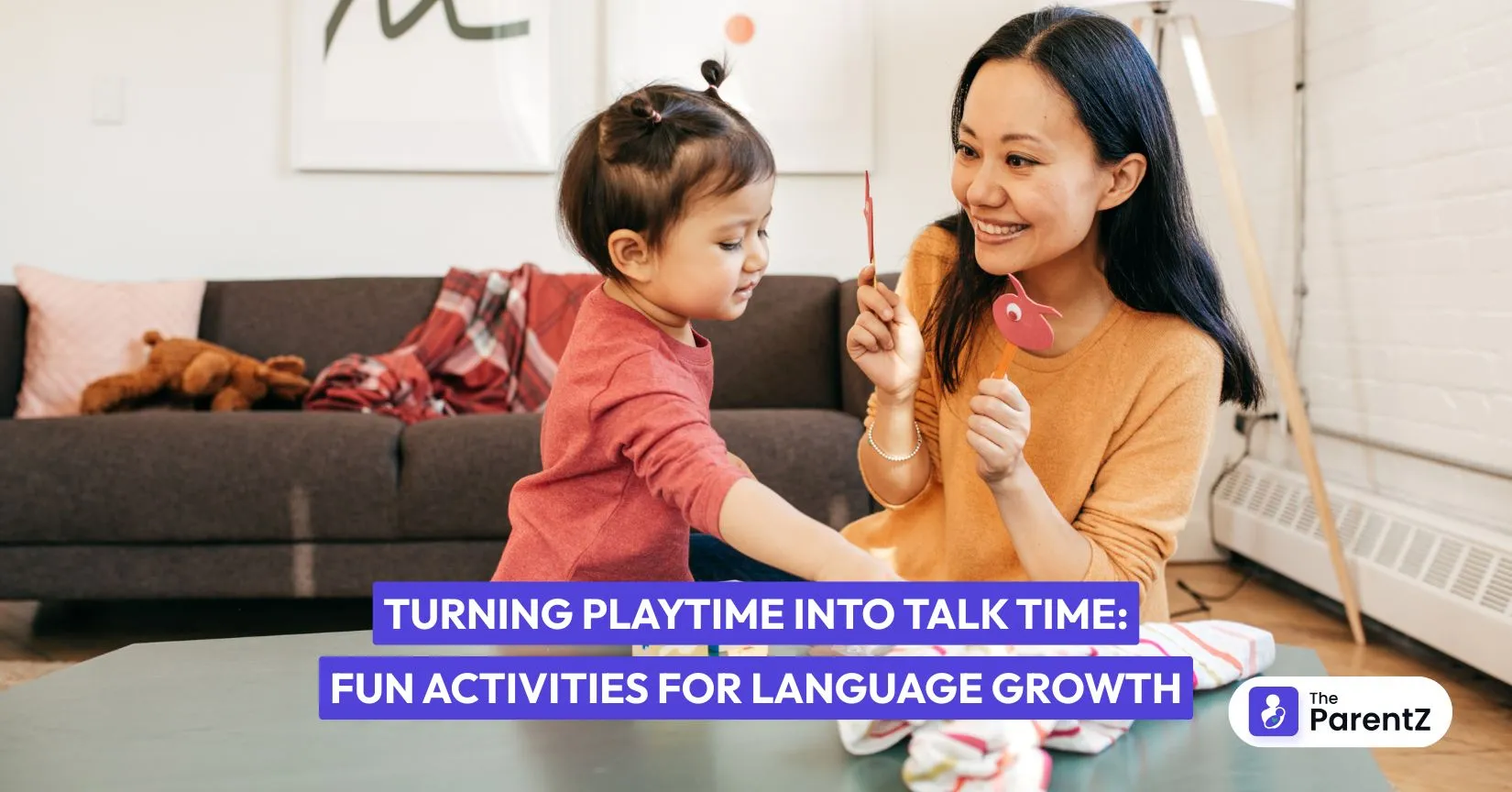Let’s face it: life with a toddler is busy, and finding time to help with language growth can feel like just one more thing on the to-do list. But what if everyday play could do the heavy lifting? Playtime is already packed with laughter, discovery, and mess; so why not turn those moments into powerful opportunities for your child to learn new words and build confidence in speaking?
Why Playtime Is the Perfect Time for Language Growth
Play is how kids naturally explore and understand the world. When you join in, you create opportunities for your child to hear new words, practice conversation, and express themselves. Research shows that kids learn best through hands-on experiences and positive interactions, exactly what playtime provides. Plus, it’s fun for both of you!
In today’s fast-paced, screen-heavy world, play-based learning is more important than ever. It helps kids develop not just language, but also social skills, creativity, and confidence.
How to Turn Playtime into Talk Time
Here are some simple, modern ways to boost language during play:
1. Be a Play Partner, Not a Director
Instead of just watching, get down on the floor and join in. Follow your child’s lead. If they’re building with blocks, build alongside them. Narrate what you’re doing: “I’m stacking the blue block on top. Can you add a red one?” This encourages your child to listen, respond, and use new words.
2. Ask Open-Ended Questions
Instead of yes/no questions, ask things like, “What do you think will happen next?” or “How should we build the tower?” This helps your child think and use more words.
3. Role-Play and Pretend Play
Set up a pretend kitchen, doctor’s office, or grocery store. Take turns being the customer, patient, or chef. Use phrases like, “What would you like to order?” or “How does your teddy feel today?” Pretend play is a goldmine for vocabulary and conversation.
4. Sing, Rhyme, and Move
Sing simple songs, make up silly rhymes, or dance together. Music and movement make learning words memorable and fun. Try “Head, Shoulders, Knees, and Toes” or make up your own song about your child’s favorite toy.
5. Read Together, But Make It Interactive
Choose colorful, engaging books. Point to pictures and ask, “What’s this?” or “What do you see?” Let your child turn the pages and tell the story in their own words. Even if they just babble, they’re practicing language.
6. Use Everyday Moments
Turn bath time, mealtime, or a walk to the park into language lessons. Talk about what you’re doing: “We’re washing your hands. The water is warm. Now let’s dry them with the towel.”
Why This Approach Actually Works
When children learn language through meaningful, enjoyable interactions, several things happen:
- Motivation skyrockets: They're learning because they want to communicate, not because they're being drilled with flashcards
- Connections form: Their brains link words with real experiences, making vocabulary stick
- Confidence grows: Regular conversation practice builds social communication skills
Common Challenges (And How to Handle Them)
- My child doesn't seem interested in talking.
Don't panic! Follow their lead instead. Notice what captures their attention, then talk about that. If they're fixated on watching the washing machine spin, join their fascination: "Wow, look at those clothes tumbling around! They're going so fast!"
- Screen time seems easier than constant conversation.
No judgment here—screens are lifesavers sometimes! But try incorporating language into screen time by watching together and discussing what you see: "Why do you think that character feels sad? What might happen next?" This transforms passive viewing into active language learning.
- I'm too exhausted for elaborate language activities.
Good news: simple is often better! Even narrating what you're doing while folding laundry counts. "I'm folding the blue shirt. Next comes the striped pajamas." The consistency matters more than the complexity.
What to Expect: The Possible Outcomes
With regular “talk time” during play, you’ll likely see your child’s language skills grow week by week. At first, they might just listen and point. Then, they’ll start to imitate you, saying words after you. Soon, they’ll use words on their own, even to ask for things or tell you a story.
Play-based language learning also helps with social skills, problem-solving, and confidence. Plus, it’s a great way to bond and create happy memories together.
Make It Work For Your Real Life
The secret to turning playtime into talk time isn't perfection—it's consistency and authenticity. Even 5-10 minute snippets of focused interaction throughout the day add up dramatically.
Remember that language learning happens in the in-between moments: car rides, waiting in lines, bedtime routines. These aren't interruptions to your day but prime opportunities for connection and growth.
Beyond the Toddler Years
As your children grow, evolve your conversation strategies:
- For school-age kids, discuss the books they're reading: "What would you have done if you were that character?"
- Introduce "what if" questions that encourage creative thinking
The Digital Balance
In today's world, complete screen avoidance isn't realistic or necessary. Instead, aim for balance:
- Use video calls with distant family members as language practice opportunities
- Choose interactive apps that encourage conversation rather than passive consumption
- Establish screen-free zones where face-to-face communication takes priority
- Share your own thoughts and invite their opinions on age-appropriate topics
Conclusion
The quality of your interactions matters infinitely more than their quantity. A 10-minute conversation where you're fully present will benefit your child more than an hour when you're distracted.
So take a deep breath, put down your phone when you can, and embrace those little everyday moments. Your child doesn't need perfect—they just need you, your words, and your attention. The language skills will follow naturally, one playful conversation at a time.
Try adding just one of these talking activities to your routine this week and watch how your child responds.





Be the first one to comment on this story.